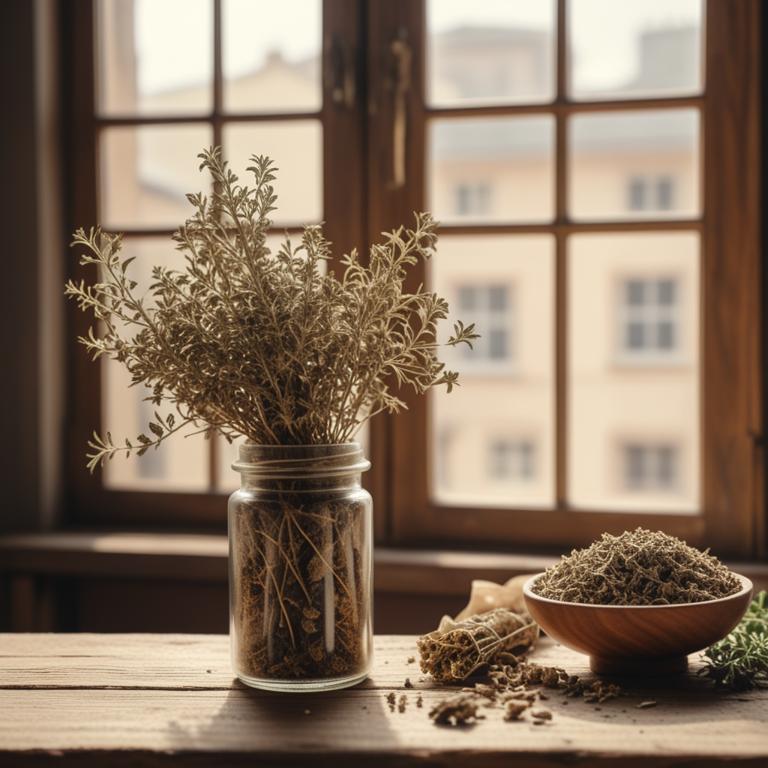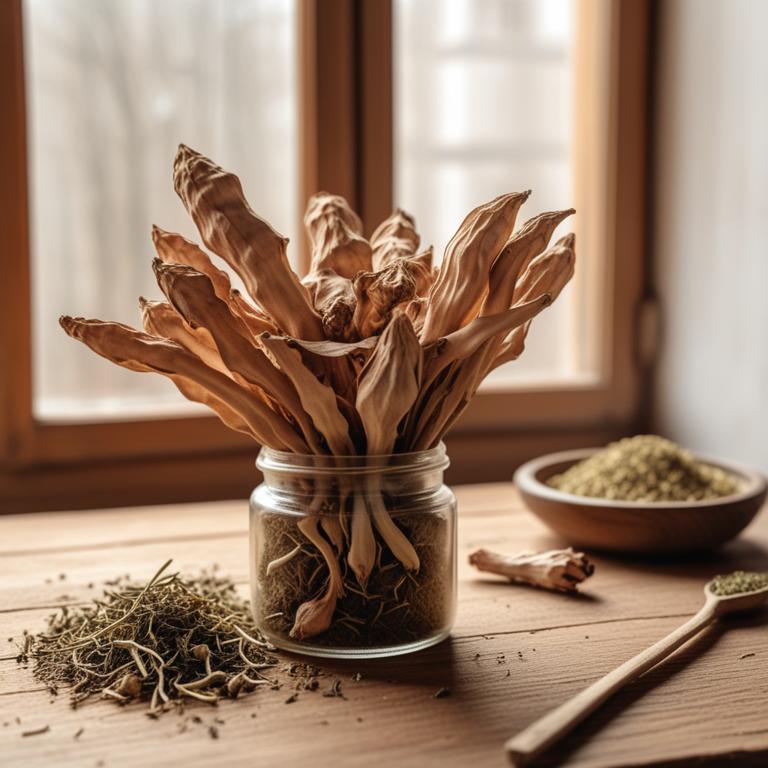Updated: Dec 1, 2024
Overcoming Loss of Appetite: Causes, Medicinal Herbs, and Herbal Remedies
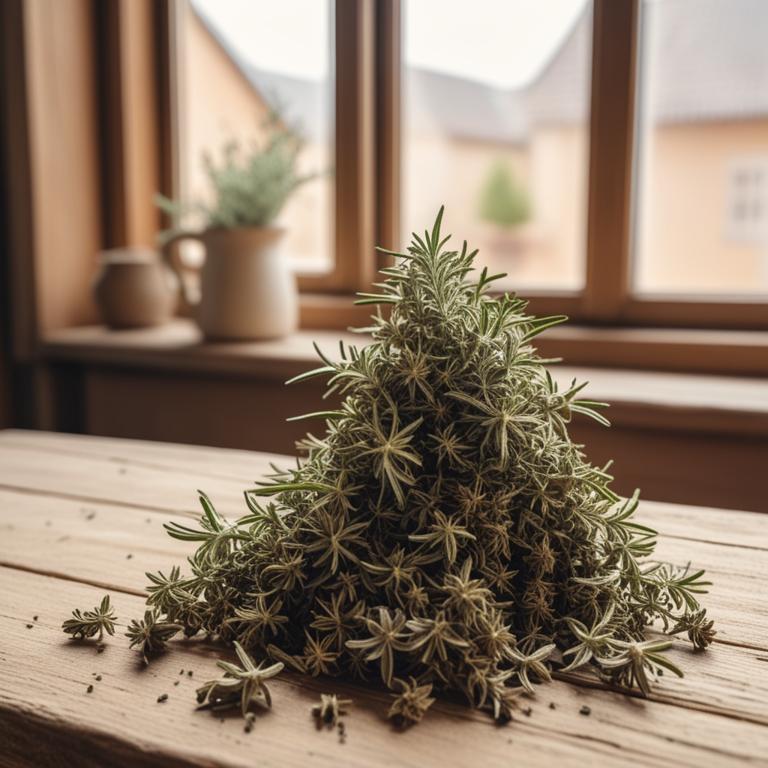
Loss of appetite, also known as anorexia, is a condition where you feel no desire to eat or drink, leading to weight loss and other health issues.
This can be a frustrating and challenging experience, especially when it affects your daily life and relationships. So, what causes loss of appetite?. It can be triggered by stress, anxiety, depression, or certain medical conditions, such as cancer or HIV/AIDS. Fortunately, there are some healing herbs that can help stimulate your appetite and improve your digestive system. Herbs like Ginger, Peppermint, and Licorice root have natural properties that can help ease nausea and stimulate digestion.
These herbs can also help reduce stress and anxiety, which can be contributing factors to loss of appetite. To use these herbs for loss of appetite, you can prepare them in various ways. One of the most popular methods is to make a tea by steeping the dried herbs in hot water. For example, you can make a Ginger tea by steeping fresh ginger roots in hot water, then straining and drinking the liquid. You can also consume the herbs in capsule or tincture form, or add them to your food as a spice or seasoning.
Additionally, some herbal preparations, such as probiotics and digestive enzymes, can be taken to support your digestive system and improve your appetite.
Table of Contents
- What are the primary causes of loss of appetite?
- What are the advantages of using herbs to address loss of appetite?
- What are the main medicinal herbs for preventing loss of appetite?
- What are the herbal products most often used to stimulate appetite loss treatment?
- What herbs should you not consume if you have loss of appetite?
- FAQ
What are the primary causes of loss of appetite?
The main causes of loss of appetite are various and can be quite serious.
Diabetes, for instance, can lead to a loss of appetite due to high blood sugar levels that can damage the nerves in the stomach, making it harder for the body to digest food. Cancer is another cause, as the growth of cancer cells can release chemicals that reduce the body's desire to eat.
HIV, the virus that causes AIDS, can also lead to a weakened immune system, causing a decrease in appetite. Kidney failure, where the kidneys are no longer able to filter waste from the blood, can result in a loss of appetite due to the buildup of toxins in the body. Liver disease, particularly cirrhosis, can cause the liver to become scarred, leading to a reduction in appetite.
Gastroesophageal reflux, also known as acid reflux, occurs when stomach acid flows back up into the esophagus, causing discomfort and pain after eating, which can make a person lose their appetite.
What are the advantages of using herbs to address loss of appetite?
Using herbs for loss of appetite can be very helpful.
One of the main benefits is that they can stimulate your appetite naturally, without any harsh side effects. These herbs can help increase your desire to eat, which is great for people who are struggling to eat due to illness, medication, or stress.
They can also help improve the taste of food, making mealtime more enjoyable. Some herbs have anti-inflammatory properties, which can help soothe digestive issues that may be contributing to a loss of appetite.
Additionally, certain herbs have been found to have a positive effect on the nervous system, which can help regulate appetite and digestion.
What are the main medicinal herbs for preventing loss of appetite?
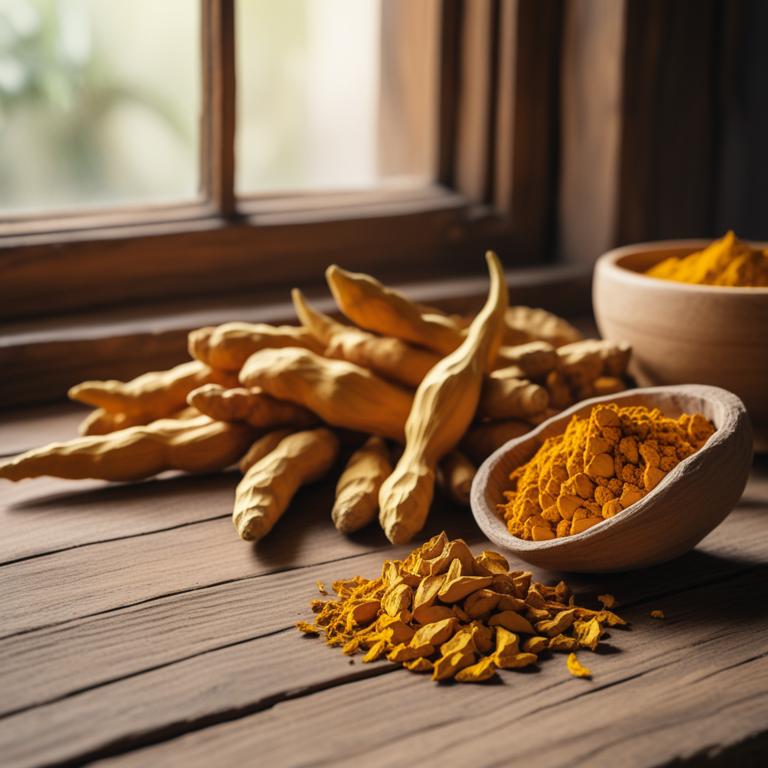
Herbs can be a natural way to stimulate appetite when you're not feeling hungry.
Turmeric, or Curcuma longa, contains a compound called curcumin, which has anti-inflammatory properties. This can help reduce nausea and discomfort that might be causing a loss of appetite. Ginger, or Zingiber officinale, is also a great option.
It has natural soothing properties that can calm an upset stomach and make you feel more like eating. Cinnamon, or Cinnamomum verum, can help stimulate digestion and make food taste more appealing. Fennel, or Foeniculum vulgare, has a mild anise-like flavor that can make food more enjoyable to eat. Black pepper, or Piper nigrum, can even help stimulate digestion and increase the bioavailability of other nutrients, making it easier to absorb the nutrients from the food you eat.
These herbs can be consumed in various forms, such as teas, capsules, or added to food, and they can be a gentle and natural way to encourage a healthy appetite.
What are the herbal products most often used to stimulate appetite loss treatment?

Herbal preparations can be very helpful when you're not feeling like eating.
A decoction is a liquid made by boiling herbs in water, which helps release their nutrients and flavors. This can be especially good for people who have trouble swallowing or digesting food. For example, a decoction made with ginger and licorice root can help soothe the stomach and increase appetite. Some people prefer to drink their herbs as a tea, which is simply steeping the herbs in hot water. This can be a soothing and calming way to get the benefits of herbs, especially if you're feeling stressed or anxious. Peppermint tea, for instance, can help stimulate digestion and increase appetite. Another option is a tincture, which is a concentrated liquid made from the herbs. Tinctures are often taken in small amounts, usually a few drops, and can be added to water or food.
They're great for people who have trouble swallowing pills or liquids. A tincture made with ginseng and ashwagandha can help increase energy and appetite. An infusion is similar to a tea, but it's made with cold water instead of hot. This is a great option for people who can't tolerate heat or who are sensitive to certain herbs. An infusion made with chamomile and lemon balm can help calm the stomach and reduce nausea. Lastly, some people prefer to take their herbs in capsule form. This is a convenient way to get the benefits of herbs without having to taste or smell them. Capsules are especially good for people who have trouble swallowing pills or liquids, or who prefer a more discreet way of taking herbs. A capsule made with turmeric and black pepper can help reduce inflammation and increase appetite.
These herbal preparations can be very helpful for people who are struggling with loss of appetite, and they come in a variety of forms to suit different needs and preferences.
Additional Resources:
What herbs should you not consume if you have loss of appetite?
If you have a loss of appetite, it's best to avoid using certain herbs.
For example, Ginkgo biloba can cause stomach problems, which can make it harder to eat. Glycyrrhiza glabra, also known as licorice root, can irritate the stomach and make it feel worse.
Gymnema sylvestre is sometimes used to help lower blood sugar levels, but it can also suppress appetite, which might not be what you need if you're already struggling to eat. Valeriana officinalis, or valerian root, can make you feel drowsy, which can make it harder to get the energy to eat. Hypericum perforatum, also known as St. John's Wort, can interact with other medications you might be taking, including ones that help with appetite, so it's best to avoid it if you're struggling to eat.
Using these herbs could make your loss of appetite worse, so it's best to talk to a doctor or a qualified herbalist before using them.
FAQ
Are there any specific herbs that can prevent loss of appetite?
Ginger is sometimes used to help stimulate appetite.
Peppermint oil and its derivatives have been studied for their potential appetite-boosting properties. Licorice root and its compounds may also increase hunger.
These herbs may work by improving digestion and reducing nausea, but more research is needed to confirm their effectiveness.
Is it safe to use herbal remedies for loss of appetite during pregnancy?
Using herbal remedies for loss of appetite during pregnancy can be a concern.
Some herbs, like ginger and peppermint, might help with nausea, but others, like pennyroyal and blue cohosh, have not been studied much and could be too strong for the baby.
Always check the ingredients and follow the instructions carefully.
Are there any herbs that can reduce the frequency of loss of appetite?
Ginseng and ashwagandha are herbs that may help reduce the frequency of loss of appetite.
They both have adaptogenic properties, which can help the body adjust to stress and promote balance. This can lead to improved digestion and a stronger appetite.
Some people find these herbs helpful in maintaining a healthy appetite.
Related Articles
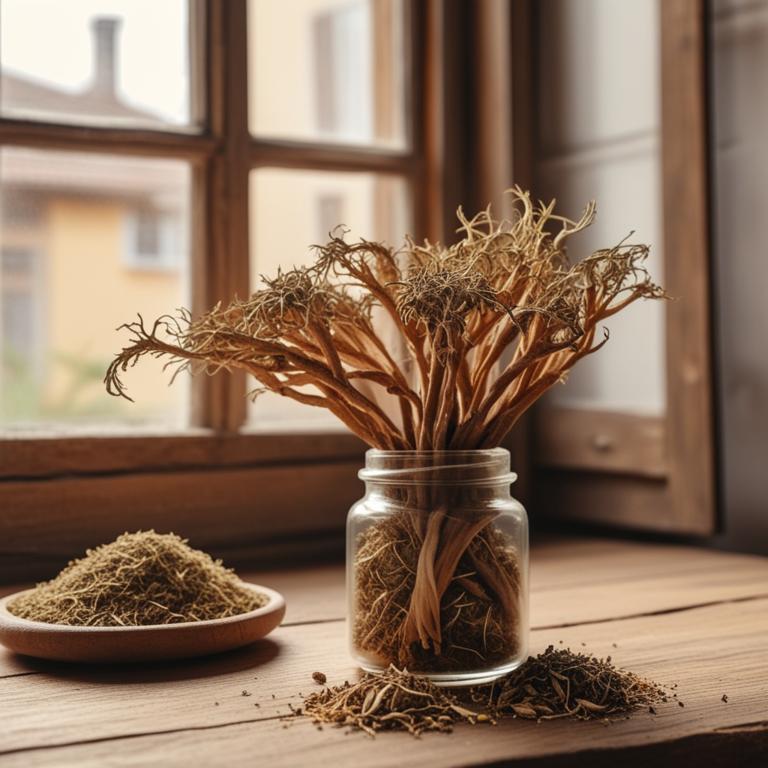
Ulcerative Colitis: Investigating the Role of Medicinal Herbs and Preparations

Causes and Herbal Solutions for Flatulence Relief

Stomach Growling: Understanding Causes, Prevention, and Herbal Remedies

Difficulty Swallowing: Causes, Remedies, and Medicinal Herb Options
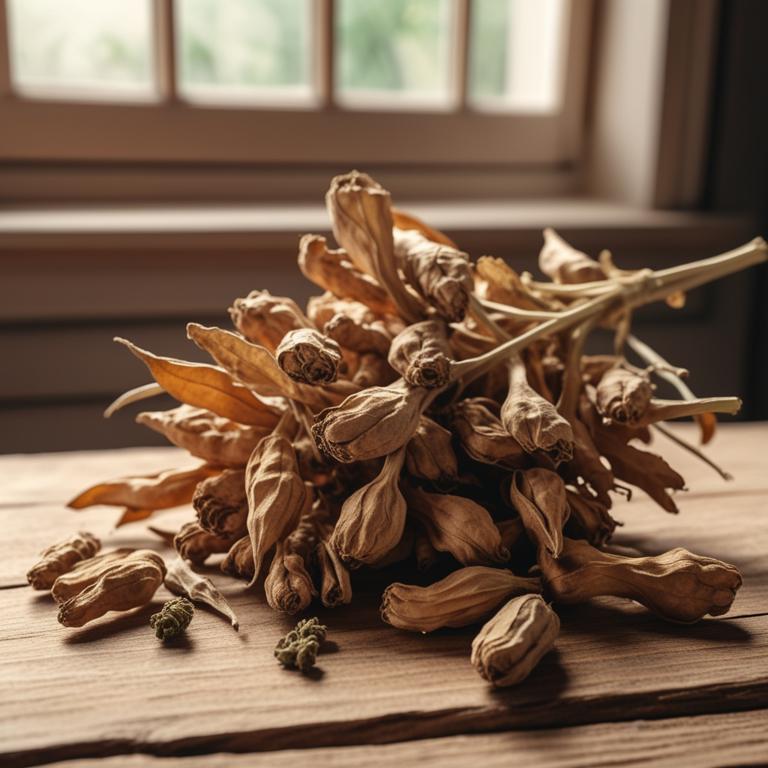
Indigestion Relief with Medicinal Herbs and Herbal Preparations: A Comprehensive Guide





